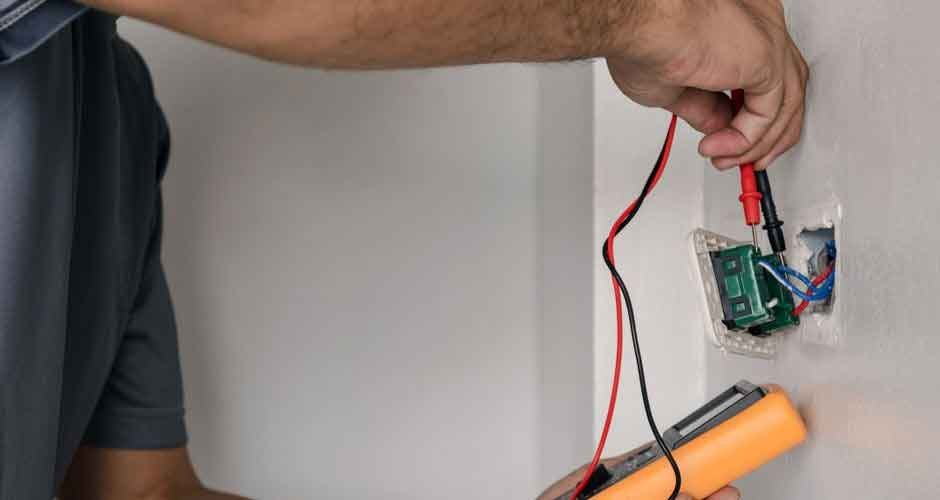Electricity is an indispensable part of modern life, powering our homes, businesses, and industries. Nevertheless, when not properly installed or maintained, electrical systems can pose noteworthy safety hazards as Olympic Management company warns. Electricians play a paramount role in ensuring the safety of homes and buildings by designing, installing, and maintaining electrical systems that meet stringent safety standards. We’ll investigate how electricians contribute to the safety of structures, occupants, and the broader community.
How do electricians contribute to the safety of structures?
1. Designing Safe Electrical Systems
Electricians are at the forefront of designing electrical systems that adhere to rigorous safety codes and regulations. They consider factors such as load capacity, circuit design, and wiring specifications to create systems that can handle the demands of modern living. This design process safeguards against electrical faults, overloads, and short circuits to prevent electrical fires and accidents. Furthermore, electricians ensure the electrical systems are compatible with the building’s structure and usage. They consider the specific needs of residential, commercial, or industrial properties, tailoring the system design accordingly. This attention to detail is paramount for stemming electrical issues that compromise safety.
2. Safe Installation Practices
Electricians are responsible for installing electrical components and systems in buildings. This task requires precision and adherence to safety protocols. Electricians carefully install wiring, switches, outlets, circuit breakers, and other electrical devices, ensuring they are correctly connected and grounded. Proper installation stems from electrical shocks, fires, and equipment damage. Electricians also play a paramount role in ensuring electrical systems are up to code. They must follow local, state, and national electrical codes to promote safety and standardization. Compliance with these codes is crucial for preventing hazardous situations, such as overloaded circuits or improper wiring.
3. Grounding and Surge Protection
Electricians implement grounding systems to divert excess electrical energy safely into the ground. Grounding is vital for preventing electrical shocks and reducing the risk of electrical fires. It provides a path for electrical current to dissipate harmlessly rather than passing through people or equipment. In addition to grounding, electricians install surge protection devices to safeguard homes and buildings against voltage spikes. Surge protectors can mitigate the damage caused by power surges, which can result from lightning strikes or fluctuations in the electrical grid. By installing surge protection, electricians help protect valuable electronics and appliances from damage, ensuring safety and financial security.
4. GFCI and AFCI Installation
Ground Fault Circuit Interrupters (GFCIs) and Arc Fault Circuit Interrupters (AFCIs) are advanced electrical safety devices designed to prevent electrical accidents. GFCIs are installed in areas where water is present, such as kitchens and bathrooms, and they detect imbalances in electrical currents, instantly shutting off power to prevent shocks. AFCIs, on the other hand, detect dangerous arcing in electrical circuits, reducing the risk of electrical fires caused by faulty wiring or damaged cords. Electricians are responsible for the proper installation of GFCIs and AFCIs, ensuring that these devices provide effective protection in residential and commercial settings. By incorporating these safety measures, electricians significantly reduce the likelihood of electrical accidents.
5. Regular Maintenance and Inspections
Electricians offer ongoing maintenance services to ensure that electrical systems remain safe and functional over time. Routine inspections can identify potential issues, such as loose connections, damaged wiring, or outdated components before they escalate into safety hazards. Regular maintenance can extend the lifespan of electrical systems and prevent unexpected failures that could lead to fires or outages. Additionally, electricians play a pivotal role in addressing electrical problems promptly. When occupants encounter electrical issues, electricians diagnose the problem, perform necessary repairs, and ensure that the electrical system is safe for use. Timely intervention is essential for preventing accidents and minimizing downtime.
6. Emergency Response and Safety Training
Electricians are equipped to respond to electrical emergencies promptly. In the event of electrical faults, power outages, or dangerous situations, electricians can be called upon to assess the situation, implement temporary fixes, and restore electrical service safely. Their training and expertise enable them to handle emergencies efficiently and stem further harm. Furthermore, electricians prioritize safety in their work practices. They are well-versed in safety protocols, including the use of personal protective equipment (PPE), proper tool handling, and the identification of potential hazards on job sites. This commitment to safety extends to both their own well-being and the safety of those around them.
Athens electricians are unsung heroes when it comes to maintaining the safety of homes and buildings. Their expertise in designing, installing, and maintaining electrical systems ensures that structures are protected from electrical hazards. From following safety codes and standards to implementing grounding, surge protection, GFCIs, and AFCIs, electricians play a vital role in safeguarding lives and property. Their commitment to ongoing maintenance, emergency response, and promoting energy efficiency further reinforces their crucial role in maintaining a safe electrical environment for all.






